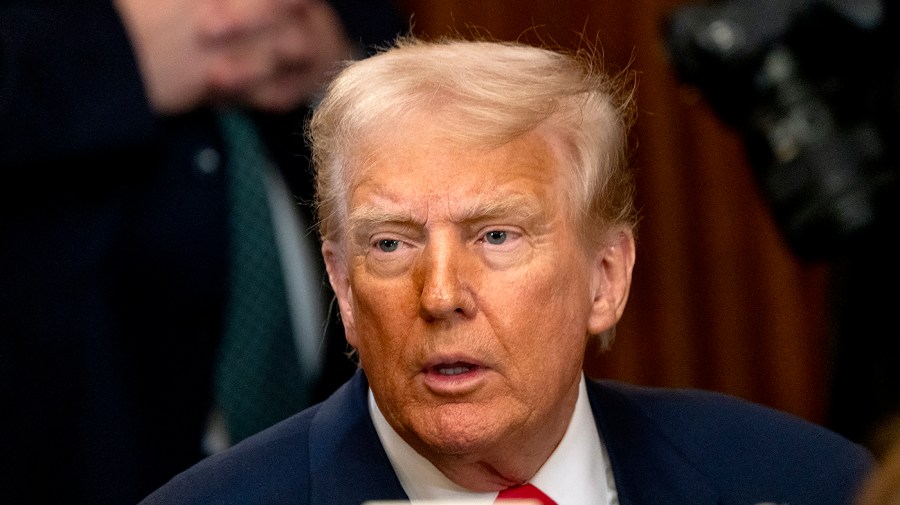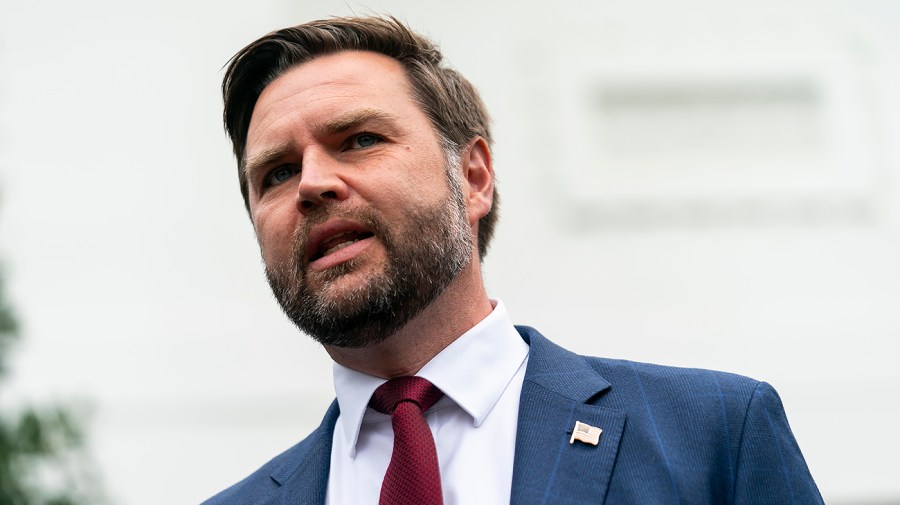Memorandum: Trump raises the confrontation with the judiciary

President Trump increased and managed to confront them while eliminating unusual heights on Monday, calling for the removal of the judge who incurred his verdict from the case.
The move comes amid a controversy that still runs about the extent to which the White House ignored the former judge in the prominent deportation case.
These details, in itself, are part of a wider image that Trump’s reaction and his allies interacted with the anger of the judges who ruled against them.
The billionaire Illon Musk has called for the isolation of the judges, and Vice President Vice -Vice -Vice was questioned the extent of the president’s obedience to the courts. For years, Trump attacked the judges who head the cases in which he participates.
In another case where much is still unclear, a Lebanese professor at the University of Brown Medical College was deported at the end of last week, despite the judge’s order to notify the courts for 48 hours of any such step.
Now, some experts warn of a complete constitutional crisis.
Mark Zaid, a prominent lawyer who represented those who report violations during both democratic and republican departments, wrote that social media is that the nation is moving quickly towards such a crisis, “where the executive branch refuses to adhere to a judicial order.”
Zaid, whose security statement was recently canceled by the Trump administration, added, “The executive authority cannot decide to obey the court of the court simply because he does not like it,” added Zaid, whose security statement was recently canceled by the Trump administration.
The main case is currently focusing on Trump’s decision to summon the law of foreign enemies for 1798 in order to accelerate deportations. The verb was used only three times before, always during the war. It was published during the 1812 war and both world wars.
This was the authority used for more than 100 immigrants who were deported on Saturday.
The Trump administration refused to provide the names of the people who were deported and were mysterious to other details as well. However, she described many deportees as members of the Violent Venezuelan Gang, Trin de Aragoa.
The argument that gang members can be deported under the law of foreign enemies is the same as controversial. The drafting of the 227-year-old legislation allows it primarily to use it when there is a “declared war between the United States and any state or foreign government”-which is not the case with Venezuela.
The law can also be called in the case of “any invasion or incursion … by any state or foreign government.”
The Trump team seems to present its legal argument on this basis – although critics claim to be a tremendous extension.
In the executive matter, he announces that the legislation will use, Trump claimed that Treen de Aragoa “infiltrated” the government of Venezuelan President Nicholas Maduro and that this has fed the creation of a “hybrid criminal state” that invades the United States
At the emergency session on Saturday evening, the American boycott judge, James Pasper, prevented the removal of Venezuelan immigrants under the law of foreign enemies. Boasberg issued an oral order that any relevant aircraft in the air at the time should return. Nevertheless, at least one plane arrived in El Salvador, whose president, Nayyib, approved the two departments prison for a fee.
The White House claimed that any relevant plane left the airspace of the United States by the time when the judge issued his order – although it is not clear that, even if this is true, he would put them outside the court order.
In the Monday session, the judge insisted that he will not do so.
But the Trump team simply confirmed that the judge was a mistake. For example, White House journalist Caroline Levitt claimed that it was “no legal basis.”
The administration sent conflicting signals about what is happening after that.
Boasberg’s residence was to remain in place for only 14 days, while basic issues were picked up in the case.
“We are not interested in what the judges think. It was not clear whether Human was referring to the general deportation policy or the specified fighting over the law of foreign enemies,” Trump Tom Human said on Monday.
The story was moving quickly.
The administration sought to postpone a hearing on Monday in its actions – a request to reject Boasberg.
In that session, the judge showed little patience with the discrimination that some of Trump’s allies drew between formulating his written matter and his verbal order to convert any planes in the air.
“You say you felt that you could ignore it because it was not in a written arrangement?” The judge asked a government lawyer on Monday.
Also on Monday, the Ministry of Justice asked the US Court of Appeal that the County County Department would pave the way for the case.
Deputy Assistant Prosecutor Druo Heefn claimed that national security concerns were weighing to make the government its case quickly and in the open court. Another said that the case should be reset due to “unusual and inappropriate measures” that Boasberg was claimed.
The biggest image is the image in which Trump and some of the main personalities are close to which the courts are incompatible with the president as the rape of democracy.
The New York Times noted that on Sunday, Trump confirmed that the judge “was putting himself as president of the United States, who was elected by 80 million votes.”
In February, Musk, who led an effort to reduce the government, complained to social media that if the judge could ban a presidential order throughout the country, “we do not have democracy, we have tyranny from the judiciary.”
Also in February, Vans wrote on social media that “judges are not allowed to control the legitimate force of the executive authority.”
But the reverse argument – that the administration simply defies the courts, opens the door to presidential chaos – is also presented.
Among those who see this in this way is the judge.
In the Monday session, the Trump administration’s position described as “we do not care, we will do what we want.”
The memo is a column reported by Niall Stanage.




Post Comment